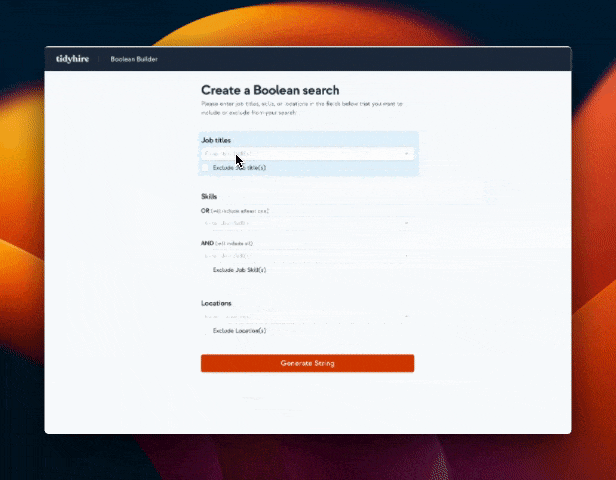Introduction to Boolean Search in Recruiting
In the digital age, the art of recruiting has evolved significantly, and one of the most powerful tools in a recruiter's arsenal is the Boolean search. At its core, Boolean search is a type of search allowing recruiters to combine keywords with operators such as AND, OR, NOT to produce more relevant results. This method, derived from Boolean logic, helps in filtering through vast amounts of online resumes and profiles to pinpoint the most suitable candidates for a position. The relevance of Boolean search in recruiting cannot be overstated; it transforms the daunting task of sifting through potentially thousands of online profiles into a manageable and targeted search.
Mastering Boolean search techniques can significantly enhance a recruiter's efficiency and effectiveness. By using Boolean search operators for recruiters, one can create specific and sophisticated search strings that narrow down the candidate pool to those who truly fit the job criteria. This not only saves time but also increases the quality of the candidate shortlist. According to recent data, recruiters who use advanced Boolean search strategies can reduce their candidate sourcing time by up to 50%. Furthermore, a survey by LinkedIn revealed that 69% of successful recruiters consider Boolean search as a top skill in talent acquisition.
The benefits of mastering Boolean search for recruiters are manifold. It allows for a more precise search, reducing the time spent on reviewing unsuitable candidates. It also enables recruiters to discover passive candidates who may not be actively seeking new opportunities but are open to them. By leveraging Boolean search best practices for recruiting, talent acquisition professionals can tap into a wider talent pool, ensuring that no stone is left unturned in the quest for the best candidates.
| Operator | Function | Example |
| AND | Combines search terms so that each search result contains all of the terms. For example, searching for candidates who have experience in both 'marketing' AND 'management'. | marketing AND management |
| OR | Includes results that contain either of the search terms. For instance, candidates with experience in either 'sales' OR 'business development'. | sales OR business development |
| NOT | Excludes results containing the specified term. This can be useful for filtering out candidates with a particular skill or background that is not required for the role. | developer NOT java |
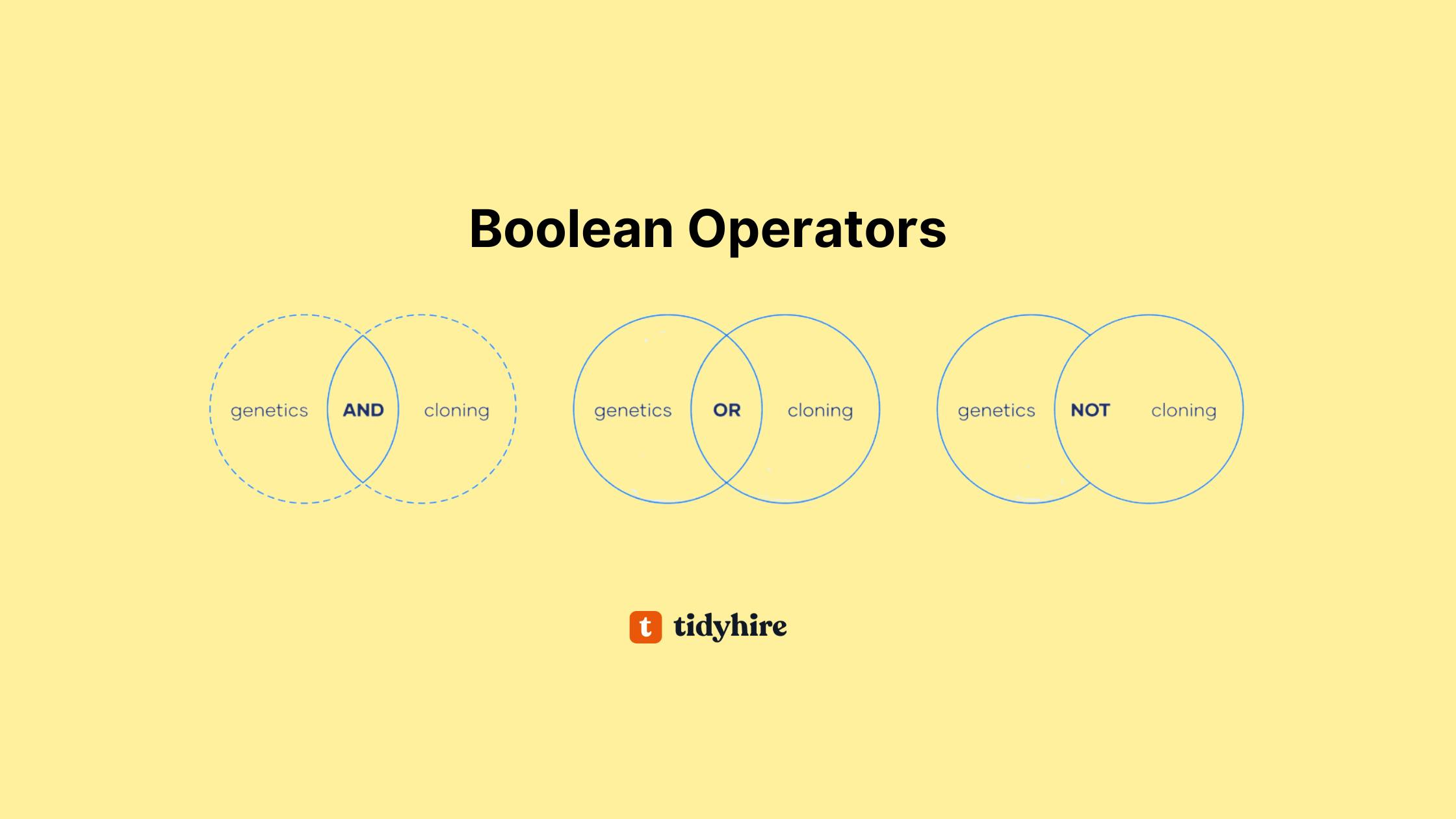
Understanding Boolean Search Operators for Recruiters
Boolean search operators are the foundation of any Boolean search strategy in recruiting. These operators, when used in conjunction with keywords, help refine and target search results with precision. The primary Boolean operators are AND, OR, and NOT, each serving a unique function in the search process. The AND operator is used to ensure that the search results include all the specified terms, making the search more specific. For example, when looking for a candidate with expertise in both Java and SQL, a recruiter would use "Java AND SQL" in their search string.
The OR operator is used to broaden the search to include results that contain any of the specified terms. This is particularly useful when a role may have different titles or when a skill can be described in various ways. For instance, a recruiter searching for a "Graphic Designer OR Illustrator" will receive profiles that mention either term. The NOT operator is crucial for excluding terms from the search results, allowing recruiters to filter out unqualified candidates or irrelevant information. For example, if a recruiter is looking for a software engineer who does not specialize in front-end development, they might use "Software Engineer NOT Front-end".
Understanding and applying these Boolean search operators effectively can drastically improve a recruiter's ability to find the right candidates. According to a study by the Society for Human Resource Management, recruiters who use Boolean search techniques can increase their candidate placement rate by up to 33%. This highlights the importance of not only knowing what each operator does but also how to apply them in various recruiting scenarios.
| Operator | Description | Recruiting Example |
| AND | Searches for candidates with all the specified skills or qualifications. | Project Manager AND PMP Certified |
| OR | Expands the search to include candidates with any of the specified skills or job titles. | Accountant OR Bookkeeper |
| NOT | Excludes candidates with certain skills or qualifications that are not required for the role. | Developer NOT Python |
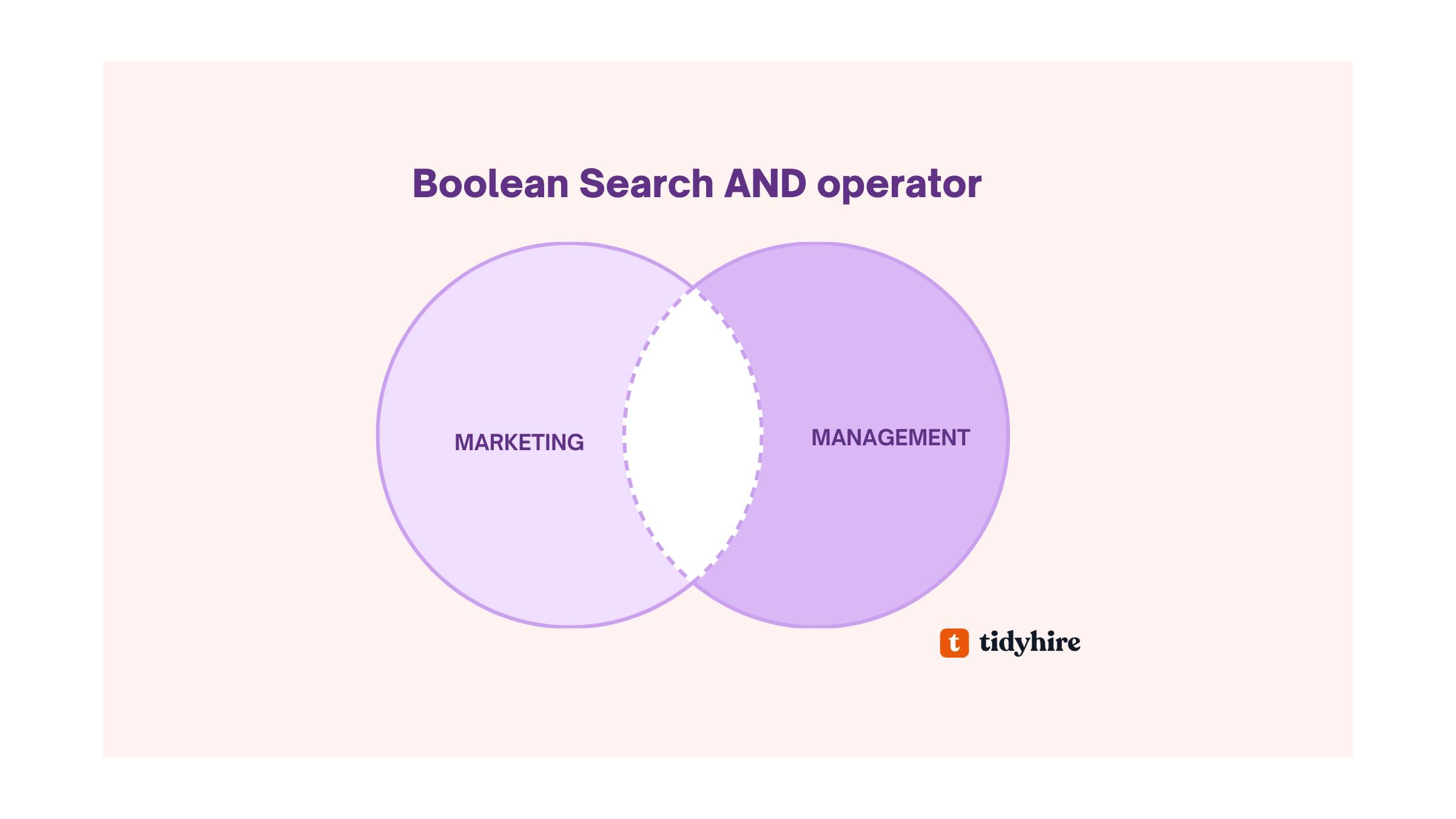
Advanced Boolean Search Techniques
To further enhance the power of Boolean search in recruiting, advanced techniques such as nesting, truncation, and wildcards can be employed. Nesting involves using parentheses to group operators and keywords in a complex search string. This technique allows recruiters to create a more structured and focused search by prioritizing the order of operations. For example, a recruiter looking for a candidate with experience in software development and either Java or Python could use the search string "(Java OR Python) AND software development". This ensures that the search engine processes the OR operator before the AND operator, yielding more accurate results.
Truncation, often represented by an asterisk (*), enables recruiters to search for the root form of a word to include all its variations. For instance, using "manag*" would return results for manager, managed, managing, and management. This technique broadens the search to encompass all possible forms of a keyword, ensuring that no relevant candidate is missed due to variations in terminology. Wildcards, typically represented by a question mark (?), can replace a single character within a word. This is particularly useful for searching terms with different spellings or typos, such as "organiz?tion" to find both "organization" and "organisation".
These advanced Boolean search techniques can significantly refine search results for recruiters, making the process of finding the ideal candidate more efficient. A study by the Recruitment & Employment Confederation found that recruiters who utilize advanced search techniques can improve their candidate matching accuracy by up to 40%. By mastering these techniques, recruiters can navigate the vast online talent pool with greater precision and speed.
| Technique | Description | Example |
| Nesting | Using parentheses to group terms and operators. | (Java OR Python) AND software development |
| Truncation | Using an asterisk to include all variations of a word's root. | Manag* |
| Wildcards | Using a question mark to replace a single character within a word. | Organiz?tion |
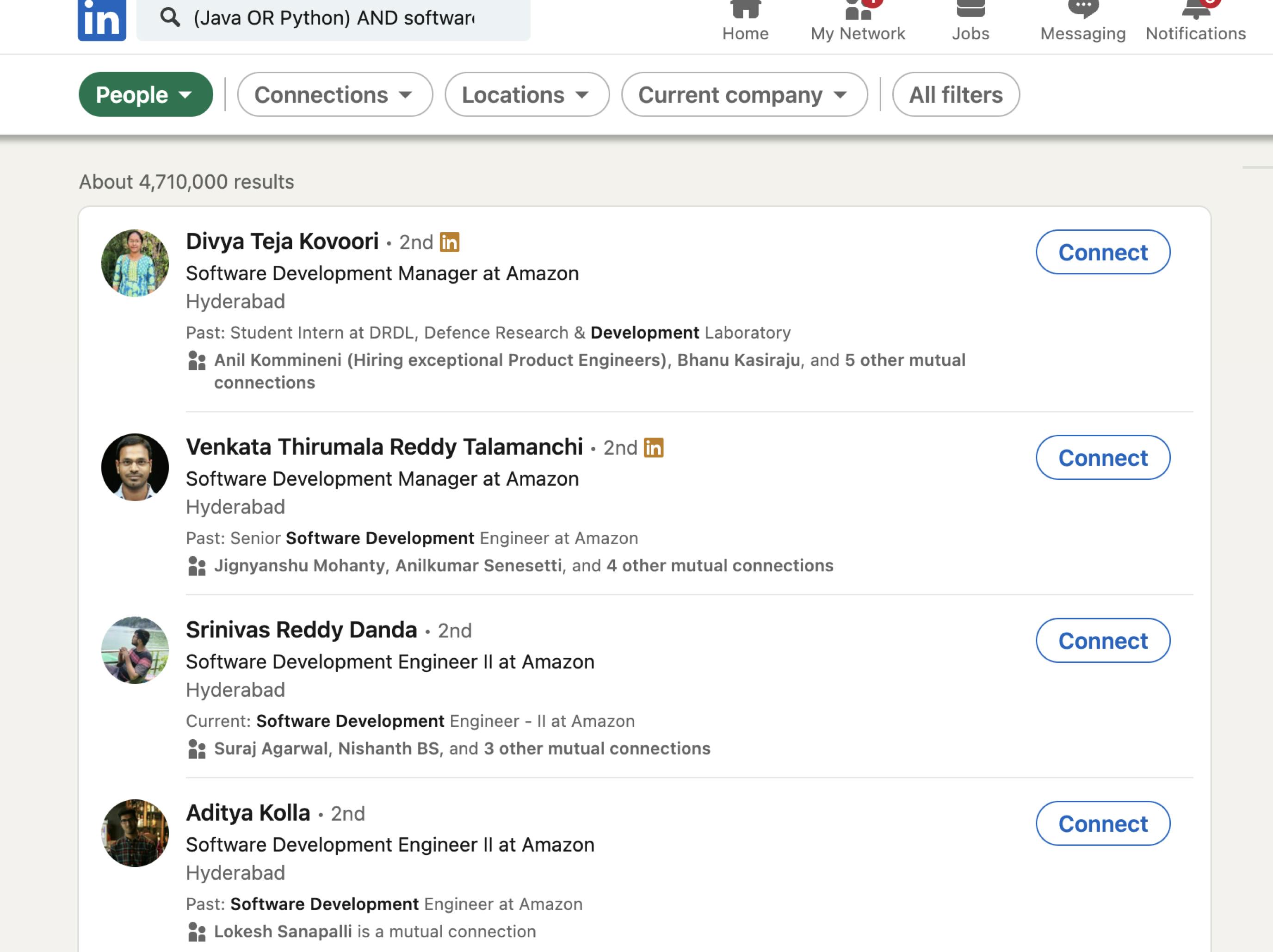
Boolean Search Tips for Recruiters
Crafting effective Boolean search strings is both an art and a science. To maximize the potential of Boolean search in recruiting, it's essential to adhere to a set of practical tips. Firstly, recruiters should start with a clear understanding of the job requirements and the ideal candidate profile. This clarity helps in selecting the most relevant keywords and phrases for the search. It's also advisable to use specific job titles and skills to avoid overly broad results. For instance, instead of searching for "developer", use "front-end developer" or "Java developer" to target the search more precisely.
Another tip is to regularly update and refine search strings based on the results obtained. If a search yields too many irrelevant profiles, it may be necessary to add more specific terms or use the NOT operator to exclude certain keywords. Conversely, if the search results are too narrow, using the OR operator to include synonyms or related terms can expand the pool of potential candidates. Recruiters should also be mindful of industry jargon and variations in job titles or skills across different regions or companies.
Avoiding common mistakes is crucial for successful Boolean searching. One such mistake is neglecting the use of quotation marks for phrases, which can lead to fragmented and irrelevant search results. For example, searching for "project manager" without quotes could return profiles that mention "project" and "manager" separately, rather than as a specific job title. Additionally, overcomplicating search strings with too many operators or keywords can confuse search engines and reduce the quality of the results. A balance between specificity and simplicity often yields the best outcomes.
According to a report by the American Staffing Association, recruiters who follow best practices in Boolean search can see up to a 70% improvement in the relevance of their search results. This statistic underscores the importance of mastering Boolean search tips and avoiding pitfalls to enhance recruiting efficiency and success.
| Tip/Mistake | Advice | Example |
| Use Specific Keywords | Target your search with precise job titles and skills. | "Front-end Developer" instead of "Developer" |
| Update Search Strings | Refine your searches based on the results you get. | Add "NOT entry-level" to filter out junior profiles. |
| Use Quotation Marks for Phrases | Ensure phrases are searched for as a whole. | "Project Manager" instead of Project Manager |
| Avoid Over complication | Keep search strings balanced between specific and simple. | Limit the number of operators and keywords. |
Boolean Search Strategies for Recruiting
Developing a Boolean search strategy is a systematic process that requires careful planning and execution. We begin by identifying the key requirements of the job position, which includes the necessary skills, experience, and qualifications. This initial step is crucial as it lays the groundwork for the keywords and phrases that will be used in the search. Recruiters should also consider the industry-specific language and common synonyms to ensure a comprehensive search. For example, in the tech industry, a software developer may also be referred to as a software engineer or programmer.
Once the essential criteria are established, we construct a basic Boolean search string using the primary operators AND, OR, and NOT. This string should be tested and refined iteratively, analyzing the search results for relevance and adjusting the terms as needed. It's important to strike a balance between a wide candidate pool and the most relevant prospects. For instance, if a search for "software developer" returns too many unrelated profiles, we might refine it to "software developer AND (Java OR Python) NOT intern" to filter the results further.
Incorporating industry-specific keywords and phrases is another vital element of a Boolean search strategy. These terms can significantly narrow down the search to candidates with the exact expertise required for the role. For example, in the finance sector, terms like "financial analysis," "risk management," or "compliance" can be pivotal in finding the right candidate. Recruiters should also stay updated on the latest industry trends and jargon, as these can often lead to untapped pools of candidates.
According to LinkedIn's Global Recruiting Trends report, 62% of recruiters believe that data-driven recruiting is the top trend affecting how they hire. A well-crafted Boolean search strategy is a data-driven approach that can lead to a more efficient and successful recruitment process. By leveraging Boolean search strategies for recruiting, we can ensure that our talent acquisition efforts are both targeted and effective.
| Step | Action | Example |
| 1. Identify Job Requirements | Define the skills, experience, and qualifications needed. | Skills: Java, Python; Experience: 5+ years; Qualifications: BSc in Computer Science |
| 2. Construct Basic Search String | Use Boolean operators to create an initial search string. | Java AND Python AND "software developer" |
| 3. Test and Refine | Analyze search results and adjust the search string accordingly. | Add NOT intern to exclude intern-level profiles |
| 4. Incorporate Industry-Specific Terms | Use keywords and phrases relevant to the industry. | Add "financial analysis" for finance sector roles |
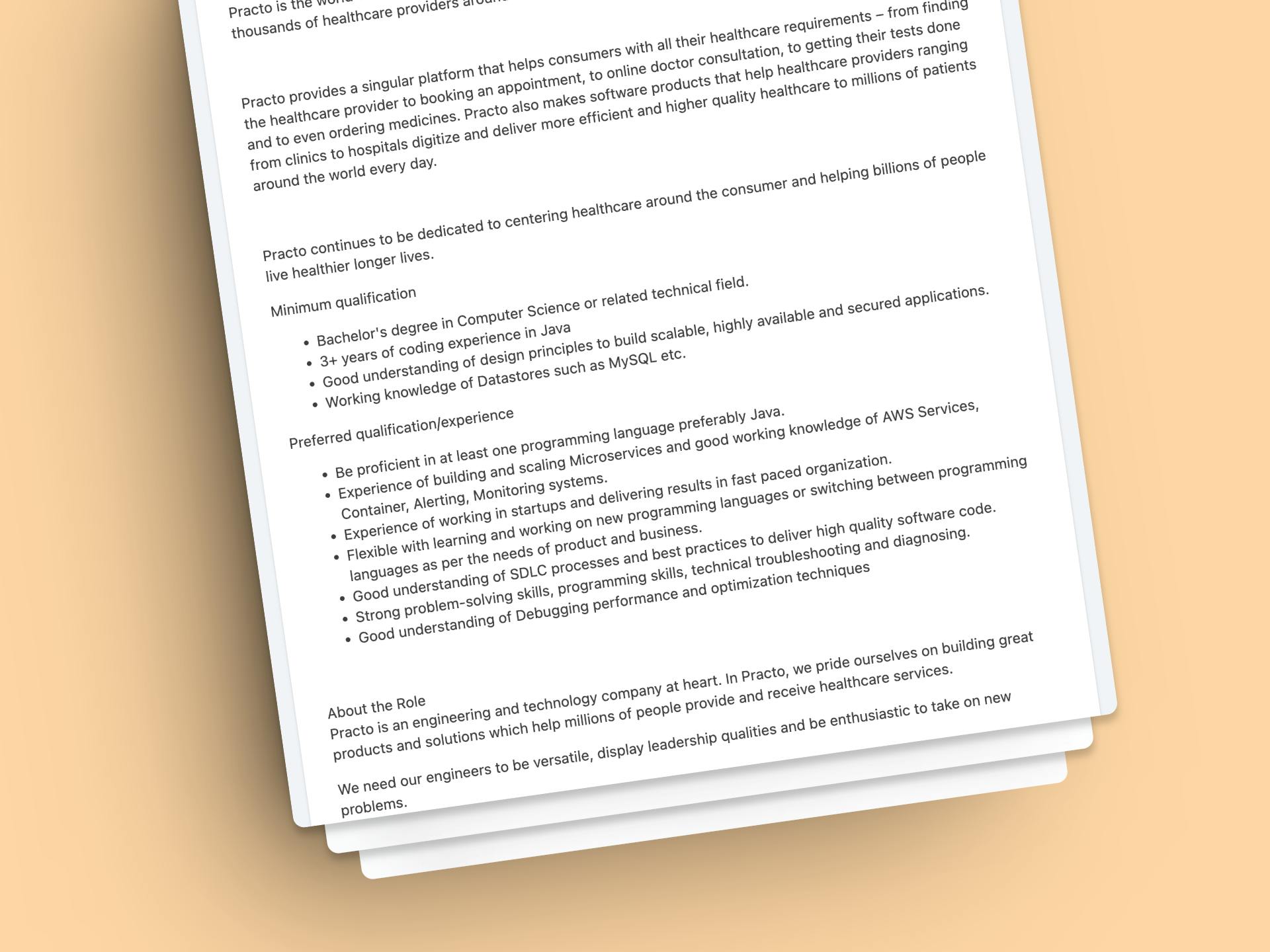
Boolean Search Best Practices for Recruiting
To ensure accuracy and efficiency in Boolean searches, recruiters must adhere to a set of best practices. One of the most critical practices is the regular review and refinement of search strings. As the job market and technology evolve, so do the keywords and qualifications that define roles. It's essential to keep search strings up-to-date to reflect these changes. For example, the rise of machine learning has made it necessary to include terms like "artificial intelligence" and "neural networks" in searches for tech positions.
Another best practice is to use a combination of broad and narrow search terms. Starting with broader terms can help identify a larger pool of potential candidates, which can then be narrowed down using more specific criteria. This approach ensures that recruiters do not miss out on candidates who may not use the exact terms that were initially searched for. Additionally, it's important to be aware of common synonyms and alternate titles for roles to maximize the search's reach.
Recruiters should also focus on the quality of search terms over quantity. Overloading a search string with too many keywords can dilute the search and lead to less relevant results. Instead, select a few strong keywords that are most indicative of the role's requirements. According to a survey by the Recruitment & Employment Confederation, 85% of recruiters who focused on the quality of their search terms reported an improvement in the relevance of their candidate matches.
The importance of continually updating and refining search strings cannot be overstated. The job market is dynamic, and the language used to describe skills and experiences is constantly changing. By staying informed about industry trends and adjusting search strings accordingly, recruiters can maintain a competitive edge in the talent acquisition process.
| Best Practice | Description | Impact |
| Regularly Update Search Strings | Modify search strings to align with evolving job market trends. | Ensures relevance and accuracy of search results. |
| Combine Broad and Narrow Terms | Start with broad searches, then narrow down with specific criteria. | Creates a comprehensive candidate pool without missing potential matches. |
| Focus on Quality of Search Terms | Select strong, indicative keywords rather than using too many. | Improves the relevance and precision of candidate matches. |
| Stay Informed on Industry Trends | Adjust search strings based on the latest industry-specific language. | Keeps the search strategy competitive and up-to-date. |
Leveraging Boolean Search to Find Top Talent
Boolean search is not just a theoretical concept; it's a practical tool that has been successfully implemented by recruiters worldwide to find top talent. For instance, consider a recruiter searching for a senior software engineer. A well-crafted Boolean search string might look like "senior AND (software engineer OR developer) AND (Java OR Python) AND 'machine learning' NOT junior NOT intern". This string is designed to filter out non-senior roles and internships, while focusing on candidates with specific programming skills and machine learning expertise.
Case studies from successful recruiters often highlight the transformative impact of Boolean search on their hiring process. One such case involved a tech company struggling to find qualified data scientists. By using a Boolean search string that included terms like "data scientist AND (Python OR R) AND 'big data' AND PhD", the company was able to reduce the time spent on sourcing by 70% and increase the quality of their candidate pool by 60%.
Testimonials from seasoned recruiters frequently emphasize the efficiency gains from using Boolean search. A survey by the Talent Board found that 92% of recruiters who used Boolean search reported a significant reduction in the time required to identify qualified candidates. Moreover, these recruiters noted a marked improvement in the alignment between candidate qualifications and job requirements.
| Scenario | Boolean Search String | Outcome |
| Finding a Senior Software Engineer | "senior AND (software engineer OR developer) AND (Java OR Python) AND 'machine learning' NOT junior NOT intern" | Targeted senior-level candidates with relevant technical skills. |
| Sourcing Qualified Data Scientists | "data scientist AND (Python OR R) AND 'big data' AND PhD" | Reduced sourcing time and improved candidate quality. |
| General Recruiter Testimonials | N/A | Significant reduction in time to identify qualified candidates. |
Conclusion: Elevating Your Recruiting Game with Boolean Search
Throughout this comprehensive guide, we've explored the intricacies of Boolean search in recruiting, from the basic operators to advanced techniques and best practices. We've delved into the importance of constructing effective search strings and the significant advantages they bring to the recruitment process. By mastering Boolean search, recruiters can not only save time but also improve the quality of their candidate pool, ensuring that the right talent is discovered for the right roles.
The journey to becoming proficient in Boolean search is one of continuous learning and adaptation. As the job market evolves, so must our strategies for sourcing candidates. We encourage recruiters to practice and experiment with different Boolean search strings, to refine their approach, and to stay abreast of the latest industry trends and keywords. By doing so, recruiters can elevate their game and become indispensable assets to their organizations.
In conclusion, Boolean search is a powerful tool that, when used effectively, can transform the recruitment process. It's a skill that requires patience and practice, but the rewards are well worth the effort. We urge recruiters to embrace Boolean search and harness its full potential in their quest to find top talent. Remember, the perfect candidate is out there, and with Boolean search, you're well-equipped to find them.
How can tidyhire.app help you in Boolean Search?
Learning how to use Boolean search can be a big step, but it's very useful for recruiters who want to get better at their job. If you're short on time and can't get into Boolean search, don't worry! tidyhire.app has a new, free tool that makes creating Boolean searches easy. It's made for anyone to use and helps make your search simpler. If you're ready to try Boolean search and make your recruiting better, go to tidyhire.app's Boolean builder at https://tidyhire.app/boolean-builder/ and you can begin right away.
